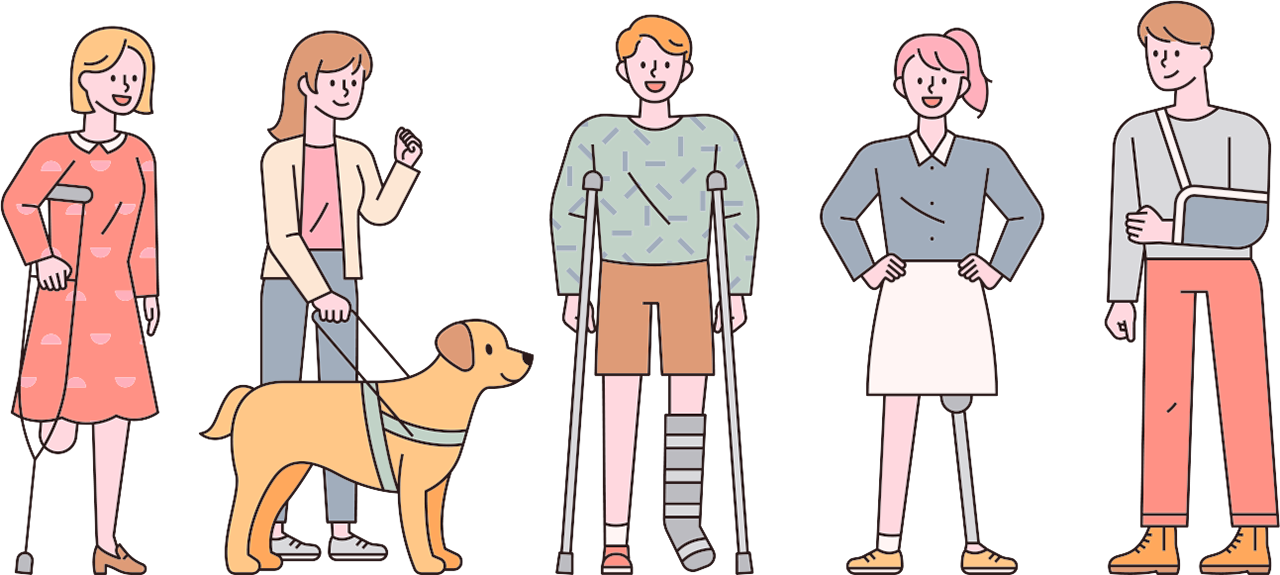
The so-called disabled workers
Established in collaboration between the Korea Railroad Corporation and the Korea Employment Service for the Disabled, Sumsum Oksu is a place where you can get free nail art services with just a KTX boarding pass. Sumsum Oksu is located in 11 locations across the country and is easily accessible as it is located inside KTX stations. In addition to nail care, they also offer a variety of other services such as nourishment and polish, massage, and drinks. Reviews of Sumsum Oksu are full of praise. However, the only thing that’s a little disappointing is that it says it’s accessible.

Sumsum Oksu (SK Shields) at Yongsan Station, a cooperative store that creates jobs for the deaf and hard-of-hearing.
Eliminate the word “disabled worker“
In fact, a number of countries are now using positive, inclusive language to emphasize diversity and inclusion.
• Canada: Diverse-ability Workers, Ability Workers
• Sweden: Personer med Funktionsnedsättning (Person with functional impairments)
• Australia: Individuals with Disabilities (People with functional impairments)
• Norway: Funksjonshemmede (People with functional impairments
These expressions are used to describe individuals with disabilities by focusing on their functional aspects. Furthermore, they emphasize the diversity of individuals by referring to them as “individuals with disabilities” rather than “people with disabilities,” which would define the group solely by their characteristics. This language use can also be interpreted as an attempt to overcome stereotypes and discriminatory attitudes by recognizing individuals with disabilities as members of society with diverse abilities and experiences.
South Korea, on the other hand, uses the term “workers with disabilities” and recognizes them as a separate category from “workers”. From a societal perspective, it may be important to differentiate between people with and without disabilities to provide them with the support they need. However, in the long run, the distinction between people with disabilities and people without disabilities can lead to the fallacy of thinking that they are not on equal footing in society, and this distinction can reinforce social biases that prevent workers with disabilities from receiving the same opportunities and treatment as people without disabilities.
Shifting perceptions through language
Language reflects societal attitudes and values, and can unintentionally or intentionally create discrimination. The messages conveyed by the terms chosen can be strongly influenced by the situation and social context. Using positive language that values the abilities and possibilities of individuals with disabilities can contribute to the recognition and respect of individuals with disabilities as members of a diverse community of people with varying abilities.
Therefore, it is necessary to create social environments that honor the diversity of individuals and enable them to maximize their abilities and contributions, rather than categorizing them as disabled or able-bodied. This is why structural changes and shifts in perception are important, as well as the use of positive and inclusive language.
References: Roh, Sun-Young. Developed countries have eliminated the term ‘disabled worker’ – why can’t Korea? Disability and the Workplace.




